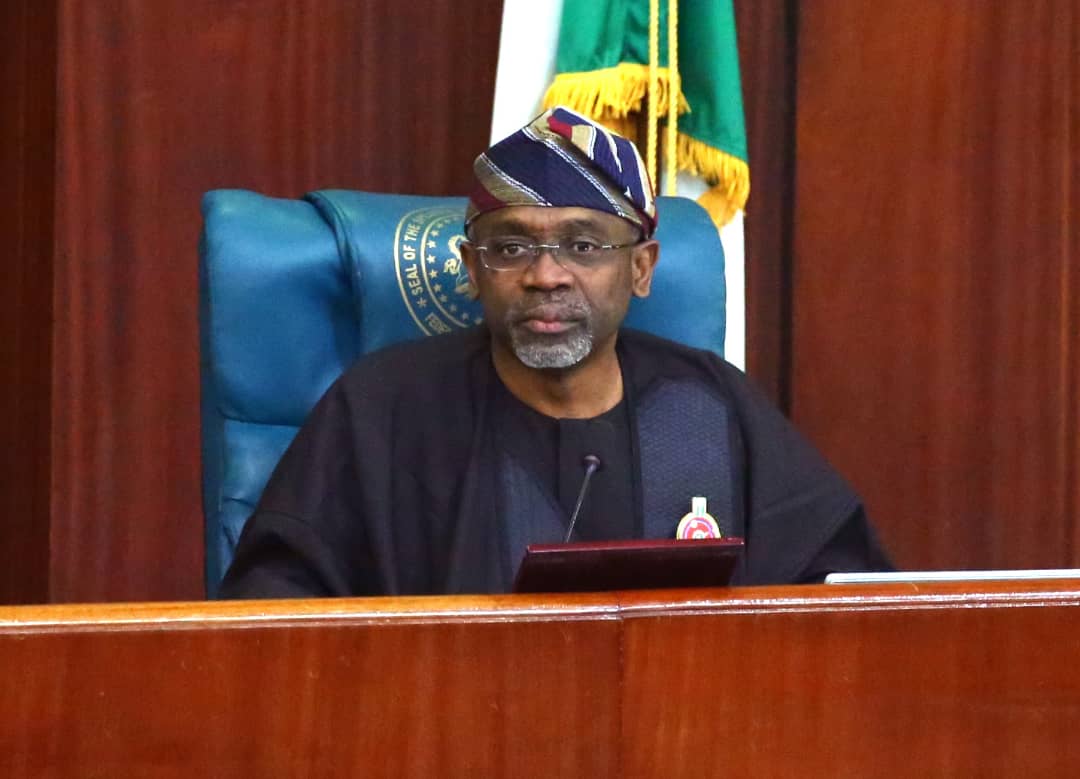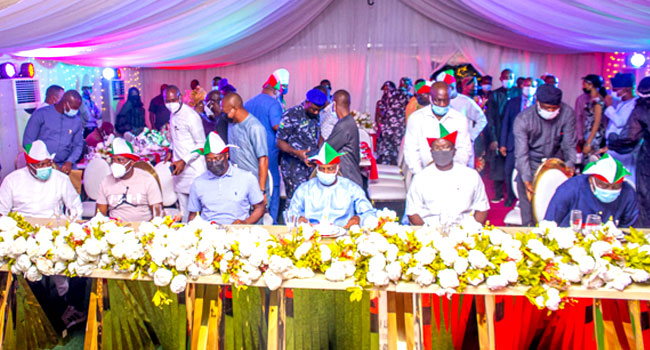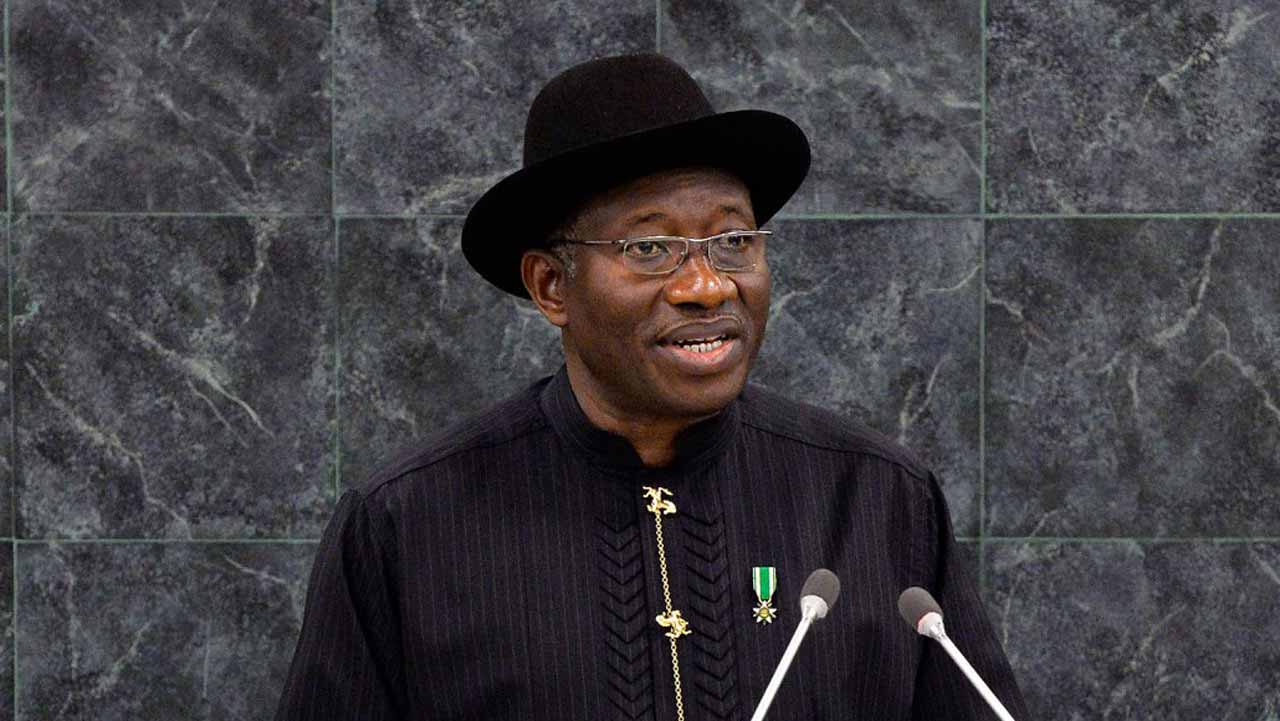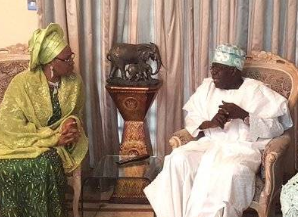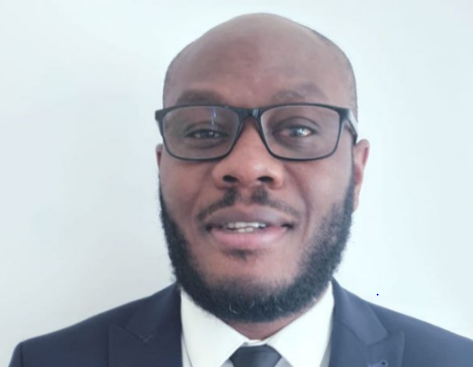Speaker of the House of Representatives Femi Gbajabiamila has thrown his weight behind the calls for power devolution and regulation of social media.
Gbajabiamila also explained that President Muhammadu Buhari did not honour an invite by the House last year over insecurity in the country because some members believed it amounted to setting a bad precedence.
He gave an indication that the bill seeking amendment to the electoral law would be passed by the House before July 16.
The Speaker spoke during a chat with youths monitored on Channels Television and Television Continental (TVC) yesterday.
Gbajabiamila, who noted that Nigerians had yet to determine the type of restructuring they desired, however admitted that power devolution was important because many items on the Exclusive Legislative list could be transferred to states.
He said: “Most people have come to understand that the government is top-heavy with 64 items on the Exclusive list. The form of devolving power is restructuring itself. Everybody talks about restructuring, but nobody has been able to talk about what restructuring is.
“As far as I am concerned, the outcome or end result is what is important. In devolution of power, what people are saying is to empower the states more. In doing that, you empower the local government so that people can feel government.
“ In a real federal structure, the federating units are the ones that basically come together and submit some power to the centre.
“But in this case, it is 64 items and I have never seen a country where you has 64 items or that many items on the Exclusive list. There are so many things in the Constitution that the central government have no business getting involved in.
“When you devolve power to the state, revenue mobilisation will give more money to the states because you will reduce the responsibility on the Federal Government. We hope that with this Constitutional amendment, we can do some significant changes that will reduce the burden on the Federal Government and send the responsibility to the states where they belong.
“We are not just going to have cosmetic changes to the Constitution because that will not get us anywhere. The changes have to be far-reaching enough to define us as a people. We hope to reshape the constitution in such a way that states are real federating units, more independent and more autonomous to the centre.”
Gbajabiamila described social media as a double-edged sword that needed to be regulated
He said: “I am glad that the issue of social media regulation has come to the fore with Twitter’s suspension.
“It is important that like everything in life, there has to be regulation. We know that social media is perhaps the most potent instrument that can be used for the good and can also be used for the negative. While we welcome the good, we must not paper over the bad or the evil. That is my position about social regulations.
“We must strike a balance where people’s right to free speech is not treaded upon. But where your right to speech ends that is where the other person’s right to protection begins. Everybody has a right and you cannot, because of your right to speech destroy me and nothing comes out of it. Many more democracies that we all look up to, are already in the mood of regulating social media.
“The National Assembly has been contemplating regulation for a long time and each time they do, people kick and when you ask why they say freedom of speech.
“It is a delicate balance, but it is something that we need to do as responsible people. We have a responsibility to protect every single citizen of this country and that is what government is supposed to do.”
Responding to a question on what the House has done about the security situation in the country, Gbajabiamila said: “We have done a lot.”
He added: “We have passed several motions and have gone to do something that I almost historic when we invited the President to address the House on the security situation.
“But unfortunately, some people thought it was a dangerous precedent. The President was very determined to come and address the House and a date was fixed. But at the end of the day, we didn’t have that opportunity.”
The speaker warned that “when we start playing politics with security, then we will have a problem.”
